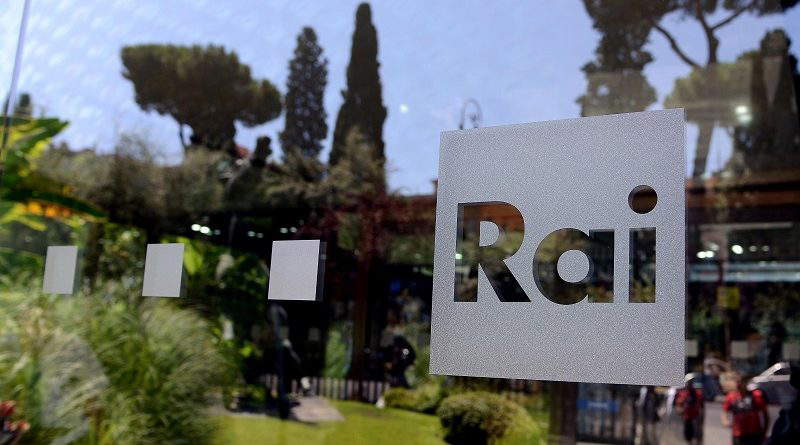At the moment the news is not yet official, but the rumors are chasing each other with more and more pungent insistence: Rai might close Rai Storia for reasons of so-called spending review, which is necessary to allow public television to overcome its financial problems. However, it would not be a closure tout court, since the plan, according to what Il Fatto Quotidiano has leaked in recent days, would be to merge Rai Storia and Rai 5 into a single network for “cultural” programs. The spending review plan presented by the ad, Fabrizio Salini, is also expected to include the closure of Rai Sport, the network destined for sports programming, typically of less-watched sports or minor league soccer, that of the institutional network, and the tightening of the network that broadcasts in English. According to the numbers also cited by The Fact, Rai’s debt, as of June 30, amounted to 275.9 million euros, up from 239.1 in the previous year, and a loss of about 130 million is expected this year, which could reach 190 million in 2021: everything, moreover, would also be weighed down by the coronavirus crisis, which will result in lower advertising revenuesî.
Rai, at the moment, does not give confirmation, but neither denial. In any case, although thehypothesis of closing Rai Storia is little talked about and the affair has had a media impact far from disruptive, the worlds of culture and sports have already raised the shields against the cancellation of the networks dedicated to history and competitions(even on these pages has been given an account of the commitment of MP Michele Anzaldi of Italia Viva, one of the few politicians, if not perhaps the only one, to urge the government so that Rai does not close the two networks), and to save Rai Storia is already a petition on Change. org that has now surpassed 40,000 signatures, and to which one can still pledge one’s contribution. However, one might be lulled by the temptation to think that the loss is not serious, for several reasons: because in any case Rai will maintain a channel dedicated to culture, because there are uninteresting programs and often reruns of broadcasts already seen, or because in any case at a time of crisis such as the one we are going through Rai does well to find ways to optimize expenses. Legitimate reasons, certainly: nevertheless, canceling Rai Storia and Rai Sport would still be profoundly wrong, for just as many well-founded reasons.
 |
To begin with, let us not forget that Rai does public service. And public service should not follow the moods, trends and tastes of viewers, not even when it comes to having to save money on spending chapters. Public service is expected to support what might not be commercially sustainable, and to promote quality content that contributes to the dissemination of culture, the development of critical thinking, and to raise awareness of realities and situations that otherwise would not have visibility. RAI cannot reason as if it were commercial television, and the promotion of cultural content or “minor” sports is one of the noblest reasons why we pay the fee: just as we all pay taxes so that municipalities, regions and the state maintain museums, in the same way we pay the fee so that RAI performs public service by broadcasting programs of public utility.
Nor does it make sense to say that, with the amalgamation, Rai would still have a cultural channel. It doesn’t make sense because the audiences that follow history on Rai Storia and art on Rai 5 are not perfectly overlapping, and as a result each of the two niches would have something to remonstrate and complain about by having part of their favorite programming cut off. And it doesn’t make sense because, even if the viewership of Rai Storia and Rai 5 were identical, it would still cut the programming reserved for culture in half. And the public service cannot afford to give in on culture, nor on history. All this while, paradoxically, the Ministry of Culture is working on a “Netflix of culture,” and Minister Dario Franceschini is appealing to TV stations to increase their cultural programming following the closure of cinemas and theaters.
One could then object to the quality of some programs, or, thinking of Rai Sport, to the fact that the network often broadcasts reruns of already seen competitions: a fair objection, but still not a valid reason to close the two networks. If anything, work should be done to improve and strengthen them, bringing them up to par with private television stations that often manage to launch themselves into more modern and appealing cultural productions than those offered by Rai. Closure is not an automatic synonym for quality improvement: besides, how can one think that by closing one network the offer can be comparable to that of two networks?
And, again when it comes to audience, there are those who oppose reasons related to share: therefore, Rai Storia should close because of its poor following. Again, a public television should not think in terms of quantitative results, and precisely to protect public service the network should be defended even by those who do not watch it. Since when should the cancellation of a network that broadcasts culture be only the problem of those who watch it? And why, if one prefers other content and has never watched even half a minute of Rai Storia, should one not protest if Rai intends to close a network that is nevertheless important? It will be the case to remember that Rai Storia is in any case of a fundamental cultural garrison: just think of those who, for various reasons (anagraphic, geographical, cultural), have difficulty in attending exhibitions, museums, cinemas or theaters, and have in their remote control a useful tool to be reached by culture in their homes. So why deprive the public of a channel dedicated to culture? A channel that, with the proper adjustments, could be, if anything, an excellent vehicle for spreading culture and awareness of history. Especially at a time of strong debate about history and the past of European countries: it is precisely at times like these that cultural programming should be corroborated rather than torn down, and it is precisely at times like these that historical popularization becomes essential to benefit a debate often polluted by distorted views of the past.
“If the company must recover resources,” suggests Anzaldi, “cut the many external productions of a commercial nature, which often make the public service confused with private TV. Cut the mega fees, reduce the wastefulness of the very expensive contracts to outside companies to produce even news programs, some with exorbitant costs and even related subcontracts that drive up expenses even more and make controls impossible.” Therefore, Rai Storia should not be sacrificed in the name of spending review: saving it, on the contrary, would be an important signal to make a strong statement that it is precisely in times of deepest crisis that we need culture.

The author of this article: Federico Giannini
Nato a Massa nel 1986, si è laureato nel 2010 in Informatica Umanistica all’Università di Pisa. Nel 2009 ha iniziato a lavorare nel settore della comunicazione su web, con particolare riferimento alla comunicazione per i beni culturali. Nel 2017 ha fondato con Ilaria Baratta la rivista Finestre sull’Arte. Dalla fondazione è direttore responsabile della rivista. Nel 2025 ha scritto il libro Vero, Falso, Fake. Credenze, errori e falsità nel mondo dell'arte (Giunti editore). Collabora e ha collaborato con diverse riviste, tra cui Art e Dossier e Left, e per la televisione è stato autore del documentario Le mani dell’arte (Rai 5) ed è stato tra i presentatori del programma Dorian – L’arte non invecchia (Rai 5). Al suo attivo anche docenze in materia di giornalismo culturale all'Università di Genova e all'Ordine dei Giornalisti, inoltre partecipa regolarmente come relatore e moderatore su temi di arte e cultura a numerosi convegni (tra gli altri: Lu.Bec. Lucca Beni Culturali, Ro.Me Exhibition, Con-Vivere Festival, TTG Travel Experience).
Warning: the translation into English of the original Italian article was created using automatic tools. We undertake to review all articles, but we do not guarantee the total absence of inaccuracies in the translation due to the program. You can find the original by clicking on the ITA button. If you find any mistake,please contact us.